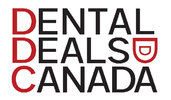A Guide to Dental Clinic Regulation in Canada: Ensuring Patient Safety and Quality Care
Dental care is an important aspect of overall health, and dental clinics in Canada are heavily regulated to ensure patient safety and quality of care. The regulation of dental clinics is overseen by a number of different organizations, including provincial and territorial dental regulatory authorities, as well as the Canadian Dental Association.
Licensing of Dental Professionals
In order to practice dentistry in Canada, dental professionals must first be licensed by the appropriate regulatory authority in their province or territory. The requirements for licensure can vary somewhat between different jurisdictions, but in general, dentists must have a degree from an accredited dental school, complete a period of supervised clinical practice, and pass a licensing examination.
Standards of Care
Dental clinics in Canada are also subject to strict standards of care, which are established by the regulatory authorities and the Canadian Dental Association. These standards cover a wide range of topics, including infection control, patient privacy, and the use of anesthesia.
Infection Control
Infection control is a particularly important area of regulation in dental clinics, as patients are at risk of exposure to a variety of infectious agents during dental procedures. Dental clinics must follow strict protocols for disinfection and sterilization of instruments and equipment, as well as for the management of waste materials.
Patient Privacy
Patient privacy is another area of concern in dental clinics, and dental professionals are required to adhere to strict guidelines to protect patient confidentiality. This includes guidelines for the storage and transmission of patient records, as well as for the sharing of patient information with other healthcare providers.
Use of Anesthesia
Dental clinics that use anesthesia must also follow strict guidelines to ensure patient safety. These guidelines cover issues such as patient screening, administration of anesthesia, and post-operative monitoring.
In Canada, dental care is primarily regulated by the following bodies:
The Canadian Dental Association (CDA): The CDA is a national organization representing dentists in Canada. It provides guidance and resources to dental professionals to ensure they meet high standards of care.
The National Dental Examining Board of Canada (NDEB): The NDEB is responsible for the assessment of dental professionals seeking licensure to practice dentistry in Canada.
Provincial Dental Associations (PDAs): Each province in Canada has a PDA that regulates dental professionals within their jurisdiction. PDAs set standards for dental care and enforce regulations to ensure patient safety and quality of care.
Provincial Dental Regulatory Authorities (PDRAs): PDRAs are responsible for the registration and licensing of dental professionals in their respective provinces. They also establish and enforce standards of practice for dental professionals.
Health Canada: Health Canada is responsible for the safety and regulation of medical devices, including dental materials and products used in dental procedures. They ensure that dental products and materials are safe, effective, and of high quality.
Dental clinics in Canada are subject to a range of regulations aimed at ensuring patient safety and quality of care. Dental professionals must be licensed and adhere to strict standards of care, including infection control, patient privacy, and anesthesia guidelines. By following these regulations, dental clinics can provide safe and effective care to their patients.

